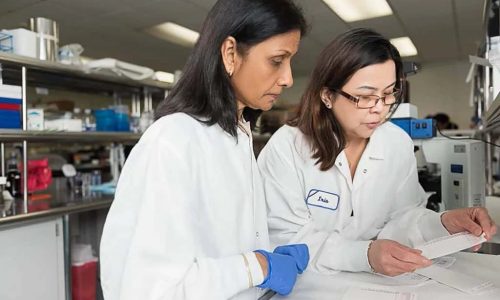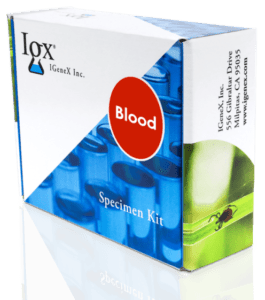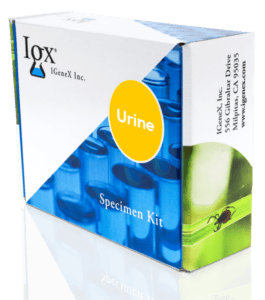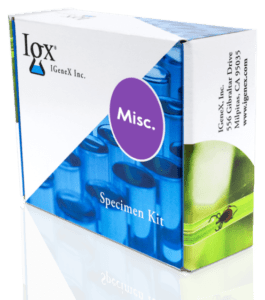• Ability to test multiple sample types using PCRs, including urine, tissue, breast milk, cerebral spinal fluid, in addition to blood.
• Especially useful for seronegative patients.
• PCRs are detecting the DNA of the bacteria itself. Therefore, a positive result is definitive.
• Enables accurate identification of biochemically unusual strains of pathogen.
• Facilitates much earlier detection of the microorganism because the assay is independent of the host’s immune response schedule. Therefore, PCRs are useful for seronegative patients as well.
• Allows monitoring of the efficacy of an antibiotic regime.
Test
TBRF PCR – CSF
$265.00
The Relapsing Fever (RF) Borrelia group real-time PCR Assay is designed for qualitative detection of RF Borrelia group DNA in clinical samples. The RF group includes B. miyamotoi, B. hermsii, B. coriaceae, B. lonestari and B. anserine, etc. The assay detects RF Borrelia group genomic DNA and B. miyamotoi specific DNA. For diagnostic purposes, PCR results should be used in conjunction with other data available to the physician.
Principle
The multiplex PCR-based diagnostic test is performed directly on the clinical specimen in a three-step assay. The steps are as follows:
Selection hybridization step
Specifically removes the “common PCR inhibitors” from the clinical sample while simultaneously selecting and purifying the DNA fragment of interest. This procedure also concentrates the fragment of interest, thereby improving sensitivity.
PCR amplification
The purified pathogen DNA fragment of interest is PCR-amplified with pathogen-specific primers. This sequence “hybridizes” or binds specifically to pathogen DNA of interest under predetermined PCR conditions. Therefore, only pathogen-specific DNA is amplified.
Detection of amplified products
The PCR-amplified products are transferred and bound to a nitrocellulose membrane. The membrane-bound, PCR-amplified products are hybridized with pathogen-specific probes. Only samples that have pathogen-specific DNA hybridize to the probes and give a blue-purple color dot on the membrane.
The combination of these three steps imparts very high specificity and sensitivity to the test.
Tube / Specimen Requirements
2mL CSF
CPT Code(s)
87798 x3
Any Stage of Disease
Test MethodologyPCR
Available in New YorkYes
RF Borrelia Genus (detects RF Borrelia species including B. hermsii, B. turicatae, B. miyamotoi, B. parkeri, B. coriaceae, B. turcica, and B.
recurrentis)
Positive: RF Borrelia DNA was detected.
Negative: RF Borrelia DNA was not detected in the sample analyzed.
RF Borrelia Subgroup Species (detects B. turicatae, B. miyamotoi, B. parkeri, B. coriaceae and B. recurrentis)
Positive: RF Borrelia species DNA was detected.
Negative: RF Borrelia species DNA was not detected in the sample analyzed.
- Results should be interpreted in conjunction with other laboratory and clinical findings.
- Test results can only help the physician in confirming clinical diagnosis.
- Not yet available for NY Residents
An inhibition study was performed on about 2000 clinical samples that included fresh whole blood, fresh serum, frozen urine and frozen CSF samples, according to NYS guidelines. It is clear that for all sample types tested, inhibition is well controlled and only occurred in less than 1% of samples. Therefore, no inhibition control is included in the assay.
Related Tests
GET STARTED TODAY!
The first step in getting tested with IGeneX is to order a collection kit. Choose between a Blood, Urine, or Miscellaneous kit.
WHY IGENEX FOR TICK-BORNE DISEASE TESTING?

- CLIA certified in all 50 states
- Long track record of success since 1991
- Offers testing that is nearly twice as accurate as CDC recommended tests
- Tests for all major tick-borne illnesses, including Lyme disease, TBRF, Babesia, Bartonella, and Rickettsia
- Utilizes comprehensive testing methods such as PCR, ImmunoBlots, IgXSpot and FISH
- Has become a nationwide leader in COVID-19 testing due to a relentless focus on customer satisfaction








